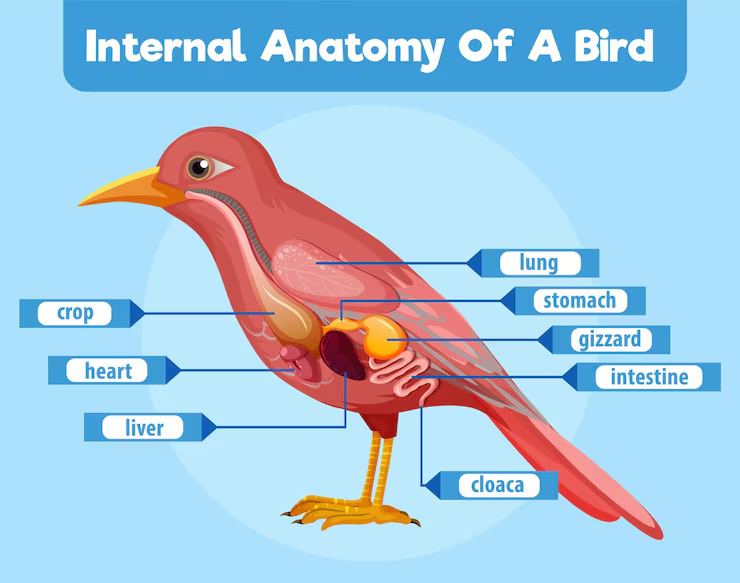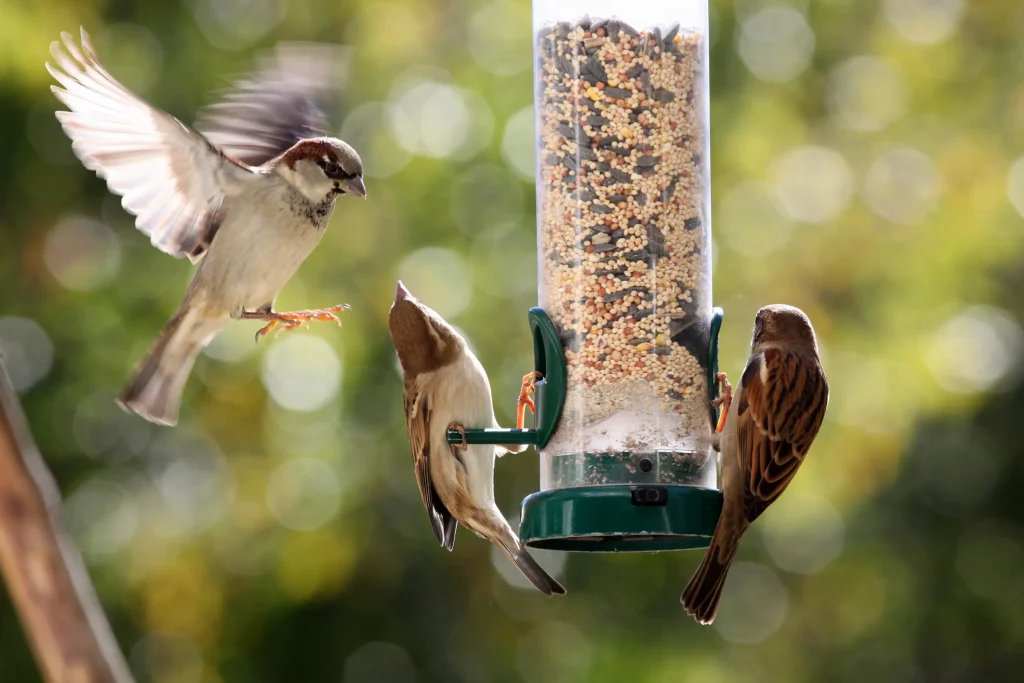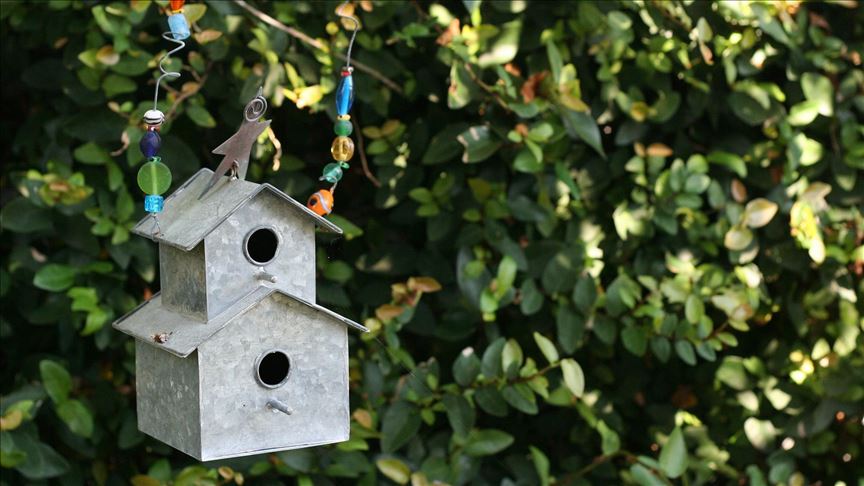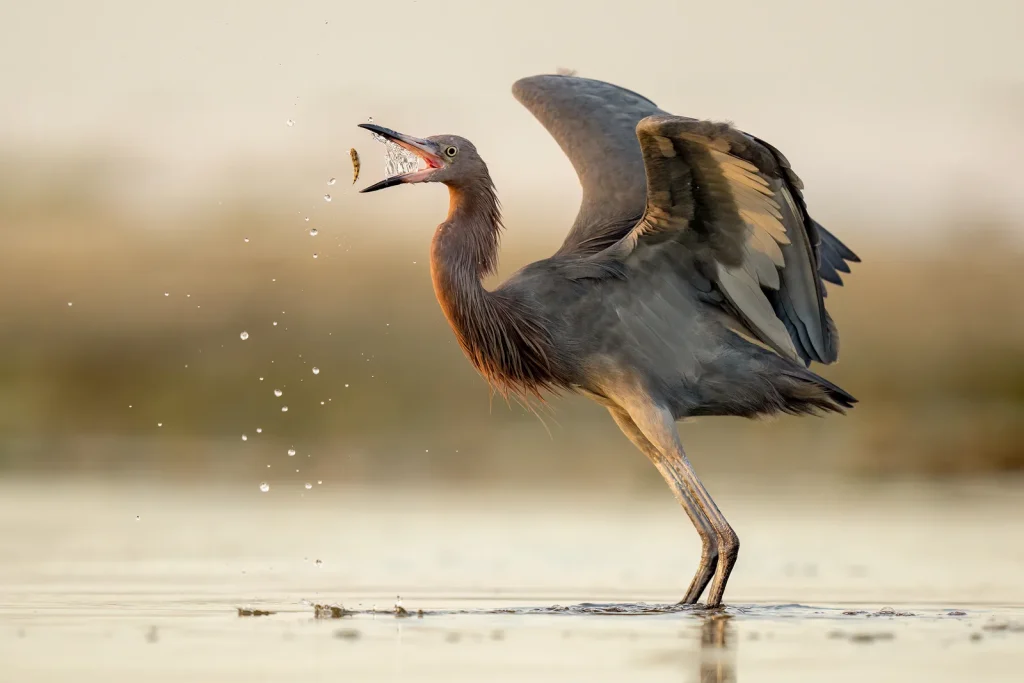Feather loss in birds can be worrying, especially when you notice bald patches or unusual feather damage on your feathered friend. You might be asking yourself, “Why is this happening?”
And “How can I fix it? ” The good news is, you’re not alone—and there are clear steps you can take to help your bird look and feel healthy again. You’ll discover simple, effective ways to understand the causes of feather loss and how to treat it, so your bird can regain its beautiful plumage and vibrant spirit.
Keep reading to learn how to protect your bird’s feathers and ensure they stay happy and healthy.

Credit: www.reddit.com
Causes Of Feather Loss
Feather loss in birds can happen for many reasons. It is important to understand what causes it to help your bird heal.
Some causes are related to diet, health, behavior, and environment. Each factor affects feathers differently.
Nutritional Deficiencies
Birds need a balanced diet to keep their feathers strong and shiny. Lack of vitamins or minerals can cause feathers to fall out or look dull.
- Low protein intake weakens feather growth
- Vitamin A deficiency causes dry skin and feathers
- Insufficient calcium affects feather strength
- Missing essential fatty acids leads to brittle feathers
Parasites And Infections
External parasites like mites and lice irritate birds and damage feathers. Infections can also harm skin and feathers.
| Parasite or Infection | Effect on Feathers |
| Mites | Cause itching and feather loss |
| Lice | Feed on feathers and skin |
| Bacterial Infection | Lead to skin inflammation and feather damage |
| Fungal Infection | Damage feather follicles |
Stress And Behavioral Issues
Stress makes birds pluck their own feathers or stop molting normally. Changes in environment or loneliness can cause stress.
Common causes of stress include:
- New pets or people in the home
- Too much noise or bright lights
- Lack of mental stimulation or boredom
- Illness or pain
Environmental Factors
Birds need a clean and safe place to live. Poor environment can cause feather loss and skin problems.
| Environmental Factor | Impact on Feathers |
|---|---|
| Dirty Cage | Harbors bacteria and parasites |
| Low Humidity | Dries skin and feathers |
| Extreme Temperatures | Stress and feather damage |
| Poor Lighting | Disrupts molting cycles |
Diagnosing Feather Loss
Feather loss in birds can have many causes. Finding the reason is important for proper care.
This guide explains how to diagnose feather loss by observing symptoms, visiting a vet, and running tests.
Observing Physical Symptoms
Look closely at your bird’s feathers and skin. Check for bald spots, broken feathers, or redness.
- Note if feathers fall out in patches or all over the body.
- Check for signs of itching or feather plucking.
- Look for skin changes like swelling or sores.
- Observe the bird’s behavior for stress or changes in activity.
Veterinary Examination
A vet will examine your bird carefully. They check the feathers, skin, and overall health.
They may ask about diet, habitat, and recent changes to find causes like parasites or infections.
Laboratory Tests
Lab tests can help find infections or nutritional problems. These tests give clear answers.
| Test Type | Purpose |
| Feather Analysis | Check for mites or damage |
| Blood Test | Detect infections or vitamin deficiencies |
| Skin Scraping | Find parasites or fungi |
Dietary Improvements
Feather loss in birds can often link to diet. Feeding the right foods helps birds grow strong, healthy feathers.
Improving a bird’s diet supports overall health and feather regrowth. Focus on balanced nutrition, supplements, and hydration.
Balanced Nutrition
A balanced diet gives birds all the nutrients they need for feather health. Protein, vitamins, and minerals play key roles.
- Provide high-quality bird pellets or seed mixes
- Include fresh vegetables like leafy greens and carrots
- Add fruits such as apples and berries for vitamins
- Offer occasional nuts and seeds for extra protein
Supplements For Healthy Feathers
Sometimes birds need extra nutrients to fix feather loss. Supplements can help fill gaps in their diet.
| Supplement | Benefit | Source |
| Omega-3 Fatty Acids | Supports skin and feather shine | Flaxseed oil, fish oil |
| Vitamin A | Boosts feather growth and repair | Carrots, sweet potatoes |
| Biotin | Improves feather strength | Egg yolks, nuts |
| Calcium | Important for feather follicle health | Crushed eggshells, mineral blocks |
Hydration Importance
Water helps birds stay healthy and supports feather growth. Dehydration can cause dry skin and feathers.
- Provide fresh, clean water daily
- Use water dishes that are easy to access
- Spray mist on feathers lightly for extra moisture
- Offer watery fruits like watermelon for hydration
Parasite Control
Feather loss in birds often results from parasites. These tiny creatures irritate the skin and feathers. Controlling parasites helps birds regain healthy feathers.
Understanding common parasites, treatment options, and prevention is key. This guide covers these points to help you care for your bird.
Common Parasites Affecting Birds
Many parasites cause feather loss in birds. These include mites, lice, and fleas. Each type affects birds in different ways but all cause discomfort.
- Mites:Tiny bugs that live on skin and feathers, causing itching and damage.
- Lice:Small insects that feed on feathers and skin debris.
- Fleas:Jumping parasites that bite and cause irritation.
Treatment Options
Treating parasite infestations quickly protects feathers and skin. Use safe and effective methods to remove pests.
| Treatment | Details |
| Topical sprays | Apply to feathers and skin to kill mites and lice. |
| Medicated baths | Soak bird in special solutions to remove parasites. |
| Oral medications | Use under vet guidance to treat internal parasites. |
| Cage cleaning | Remove parasites from the environment to prevent reinfestation. |
Preventive Measures
Prevent parasites to keep your bird healthy and feathered. Regular care and cleaning reduce risks.
- Clean cages and perches weekly.
- Inspect birds regularly for signs of parasites.
- Provide a balanced diet to boost bird immunity.
- Quarantine new birds before introducing them.
- Keep the bird’s environment dry and well-ventilated.
Stress Reduction Techniques
Feather loss in birds often happens because of stress. Reducing stress helps birds feel calm. This can stop feather plucking and loss.
Simple changes in a bird’s life lower stress. These changes make the bird happier and healthier.
Environmental Enrichment
Environmental enrichment means adding things that keep birds busy. Toys, perches, and new objects make their space fun.
Changing toys often keeps birds curious. Different shapes and textures help reduce boredom and stress.
- Add swings, ladders, and chew toys
- Include natural branches for perching
- Offer puzzle toys to challenge their minds
- Rotate toys weekly for new interest
Social Interaction
Birds are social animals. They need contact with other birds or people to feel safe and happy.
Talking, gentle petting, and spending time near them lowers stress. If possible, keep more than one bird for company.
- Spend at least 30 minutes daily with your bird
- Use calm and soft voices when near them
- Allow birds to see and hear other birds
- Consider a bird companion if your bird is alone
Routine And Stability
Birds feel safe with a clear daily routine. Feeding, cleaning, and playtimes should happen at the same hours.
Stable surroundings reduce anxiety. Avoid loud noises and sudden changes in their environment.
- Feed your bird at the same times every day
- Keep cage cleaning on a regular schedule
- Maintain steady light and dark periods
- Limit loud sounds and sudden movements
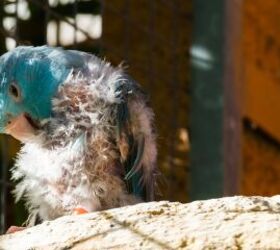
Credit: www.petguide.com
Medical Treatments
Feather loss in birds can result from many causes. Medical treatments help heal and prevent further damage.
Using the right medicines supports your bird’s health and feather regrowth.
Medications For Infections
Bacterial and fungal infections often cause feather loss. Veterinarians prescribe antibiotics or antifungals to fight these infections.
It is important to follow the full course of medicine to clear the infection.
- Antibiotics target bacterial infections
- Antifungal medicines treat fungal growth
- Medications come as pills, liquids, or injections
- Veterinary advice is essential for proper use
Anti-inflammatory Solutions
Inflammation can cause itching and feather damage. Anti-inflammatory medicines reduce swelling and discomfort.
These solutions help your bird feel better and stop it from pulling out feathers.
- Steroid treatments reduce severe inflammation
- Non-steroidal options cause fewer side effects
- Always use under veterinary supervision
Topical Treatments
Topical treatments protect the skin and promote healing. They soothe irritation and prevent infections.
Apply creams or sprays carefully to affected areas as directed by a vet.
- Antiseptic creams prevent skin infections
- Moisturizers keep skin soft and healthy
- Medicated sprays can reduce mites or parasites
- Regular cleaning helps improve treatment results
Feather Regrowth Support
Feather loss in birds can affect their health and comfort. Supporting feather regrowth helps birds regain their natural protection and beauty.
This guide covers ways to help your bird regrow feathers safely and effectively.
Proper Grooming Practices
Regular grooming keeps feathers clean and encourages new growth. Use gentle techniques to avoid damage.
- Provide regular baths or misting to clean feathers
- Use a soft brush to remove dirt and debris
- Trim nails carefully to prevent feather injury
- Keep the bird’s environment clean and safe
- Avoid stress during grooming sessions
Supplements To Boost Regrowth
Good nutrition supports feather health. Some supplements can help your bird grow strong feathers faster.
| Supplement | Benefit | Sources |
| Vitamin A | Supports skin and feather health | Carrots, leafy greens |
| Biotin | Promotes feather growth | Egg yolk, nuts |
| Omega-3 Fatty Acids | Reduces inflammation and improves feather shine | Flaxseed, fish oil |
| Protein | Builds strong feathers | Cooked eggs, legumes |
Monitoring Progress
Watch your bird’s feathers closely to see if regrowth is happening. Keep notes to track changes.
- Check feathers weekly for new growth
- Look for signs of broken or damaged feathers
- Note changes in feather color and texture
- Observe your bird’s behavior for stress or discomfort
- Consult a vet if no improvement appears after a month

Credit: www.reddit.com
Preventing Future Feather Loss
Feather loss in birds can cause discomfort and health problems. Preventing it helps your bird stay healthy and happy.
There are simple ways to reduce the chance of feather loss. These include health checks, a clean home, and training behavior.
Regular Health Checks
Check your bird’s health often. Look for signs like dull feathers, skin redness, or changes in behavior. Early detection helps prevent feather loss.
- Watch for unusual feather dropping or bald spots.
- Notice changes in eating or activity levels.
- Schedule vet visits at least twice a year.
- Keep records of any health changes or treatments.
Clean Living Environment
Keep your bird’s cage and area clean to avoid infections that cause feather loss. Replace bedding and clean food and water containers daily.
| Cleaning Task | Frequency |
| Change cage lining | Daily |
| Wash food and water dishes | Daily |
| Clean cage bars and toys | Weekly |
| Disinfect cage and accessories | Monthly |
Behavioral Training
Teach your bird good habits to stop feather plucking. Boredom and stress often cause feather loss.
- Give your bird toys to keep it busy.
- Spend time daily to play and interact.
- Avoid loud noises or sudden changes around your bird.
- Use positive rewards to encourage calm behavior.
Frequently Asked Questions
What Causes Feather Loss In Pet Birds?
Feather loss in birds can result from stress, poor nutrition, parasites, or illness. Identifying the cause is key to effective treatment. Regular vet check-ups help diagnose underlying problems early. Proper care and diet prevent many feather loss issues.
How Can I Treat Feather Loss Naturally?
Natural treatments include improving diet with vitamins and minerals, reducing stress, and maintaining clean living conditions. Regular grooming and providing enrichment prevent boredom. Consult a vet before using supplements or home remedies to ensure safety and effectiveness.
When Should I See A Vet For Feather Loss?
Visit a vet if feather loss is sudden, severe, or accompanied by skin wounds or behavioral changes. Persistent feather loss may indicate infections or parasites. Early veterinary advice ensures prompt and accurate treatment to protect your bird’s health.
Can Feather Loss Be Prevented In Birds?
Yes, feather loss can be prevented by providing a balanced diet, proper hygiene, and mental stimulation. Avoid overcrowding and stressful environments. Regular health checks and parasite control help maintain healthy feathers and overall well-being.
Conclusion
Feather loss in birds can worry any bird owner. Addressing it promptly is crucial. Start by checking for parasites or nutritional deficiencies. Ensure your bird has a balanced diet. Regular vet visits help spot issues early. Stress reduction is also key.
Provide a calm and safe environment. Feather plucking can sometimes be behavior-related. Consider toys and activities to keep your bird entertained. With proper care and attention, most birds regain their feathers. Always stay observant and proactive. Your bird’s health depends on your care.
Feather loss can be managed effectively with the right steps.

